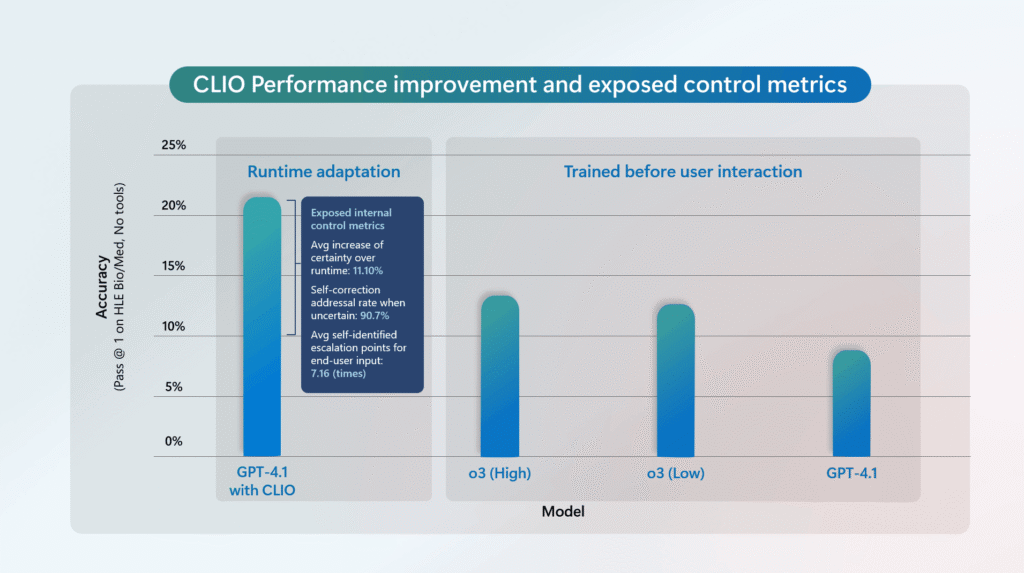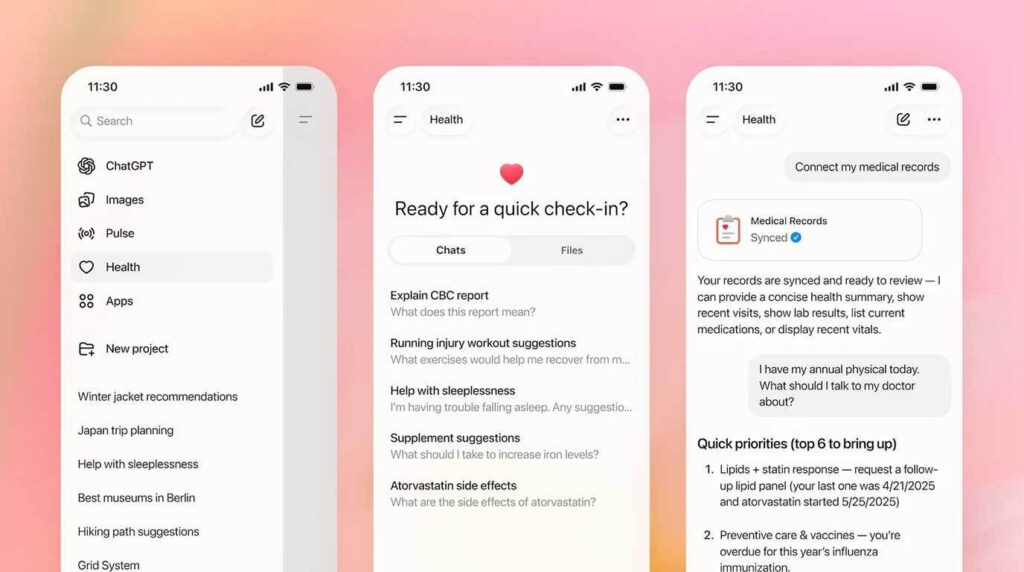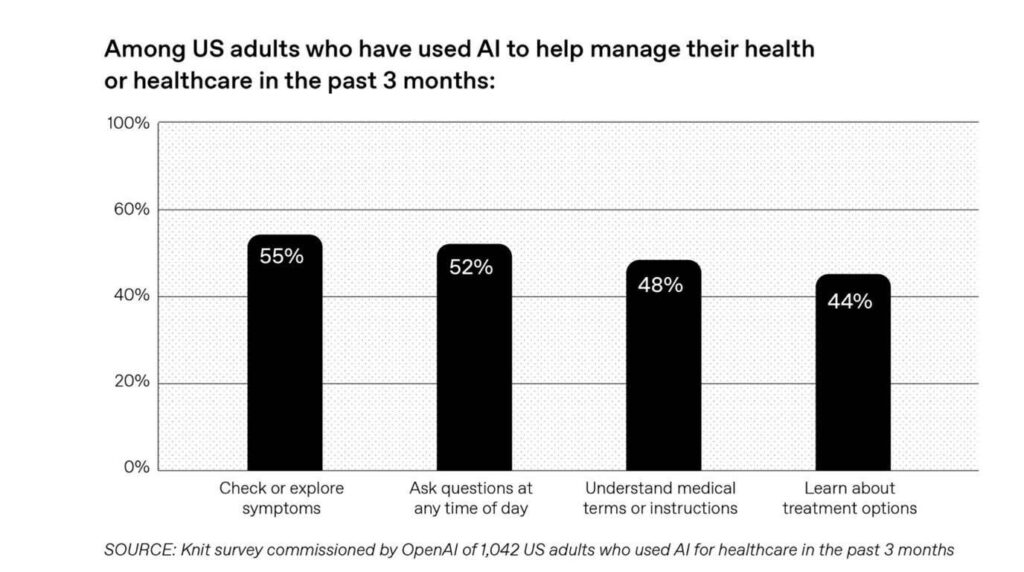Microsoft has unveiled CLIO (Cognitive Loop via In-situ Optimization), a revolutionary AI framework that enables large language models without built-in reasoning capabilities to develop their own thought patterns and adapt their reasoning in real time.
Unlike standard models, where strategies and actions are pre-encoded during training and fine-tuning before deployment, CLIO offers a “controllable” AI system. It builds and refines reasoning through self-reflection during execution, creating its own feedback loops that explore ideas, manage memory, and flag uncertainties.
This architecture gives users full control – they can set uncertainty thresholds, modify the reasoning flow, or restart it from scratch. Such flexibility allows the model to adapt to different challenges instead of remaining static after training.
Results are already impressive: on the Humanity’s Last Exam test, CLIO increased GPT-4.1’s accuracy on biomedical questions (text-only) from 8.55% to 22.37%, outperforming OpenAI’s o3 (high) model.
Beyond the performance boost, CLIO provides process explainability, memory control, and reasoning adjustments, making it ideal for scientific fields where trust and precision are critical. Microsoft demonstrates that large language models do not need to be “finished” at the training stage – they can continuously improve and adapt to user needs, especially in domains requiring rigorous scientific analysis and discovery.
In Brief: Tech World Highlights
- Anthropic reportedly plans to raise $5 billion in a new funding round led by Iconiq Capital, at a $170 billion valuation, nearly triple its previous valuation in March.
- OpenAI announced Stargate Norway, its first European data center initiative, to be developed through a partnership with Aker and Nscale.
- YouTube is introducing new AI tools for content moderation that estimate users’ ages based on watch history and other factors, aiming to better identify and protect minors.
- Neo AI unveiled NEO, an “Agentic Machine Learning Engineer” powered by 11 agents, claiming to set new benchmarks on ML-Bench and Kaggle competitions.
- Amazon reportedly pays $20–25 million annually to license New York Times content for AI training and internal AI platform use.
AI Trending Tools:
- Shortcut AI – AI agent for Excel spreadsheets.
- Copilot Mode – New agent capabilities for Microsoft Edge.
- The Rundown – Growth and Content Strategist.









